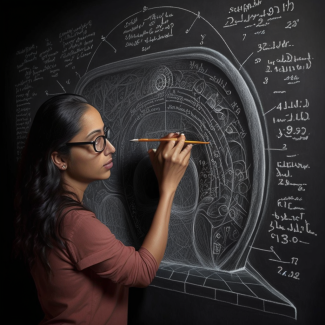"The Role of Physics in Advancing Medical Science and Improving Healthcare"
Title: "The Role of Physics in Advancing Medical Science and Improving Healthcare"
Introduction:
The biological processes in the human body and the treatment of various diseases rely heavily on the effective application of principles from physics in medicine. Physicists have developed powerful analytical tools and techniques that provide insights into the underlying mechanisms of living systems. This knowledge can be used to improve patient care and develop better treatments.
Body:
The use of physics in medical imaging has revolutionized the way doctors diagnose and treat diseases. Imaging techniques such as X-rays, ultrasound, and magnetic resonance imaging (MRI) rely on principles of physics to visualize the internal structure of the body. Physicists have also developed advanced imaging techniques such as positron emission tomography (PET) and computed tomography (CT) scans, which provide highly detailed images of the body's internal structures.
Another area where physics has made significant contributions to medicine is in the development of radiation therapy for cancer treatment. Radiation therapy uses high-energy particles, such as X-rays, to kill cancer cells. Physicists have played a critical role in designing and developing the technology and equipment needed for radiation therapy, ensuring that cancer patients receive the most effective treatment possible.
Furthermore, physics has contributed to the development of many medical devices, such as pacemakers, defibrillators, and artificial hearts. These devices rely on the principles of electricity and magnetism to keep the heart functioning properly or to replace it entirely. Other devices such as hearing aids, prosthetic limbs, and cochlear implants also rely on the principles of physics to help people with disabilities live more fulfilling lives.
Conclusion:
In conclusion, the role of physics in medicine is critical to the advancement of medical science and improving healthcare. The applications of physics in medical imaging, radiation therapy, and medical devices have revolutionized patient care and provided new avenues for research and innovation. As technology continues to advance, the role of physics in medicine will undoubtedly become even more crucial.


